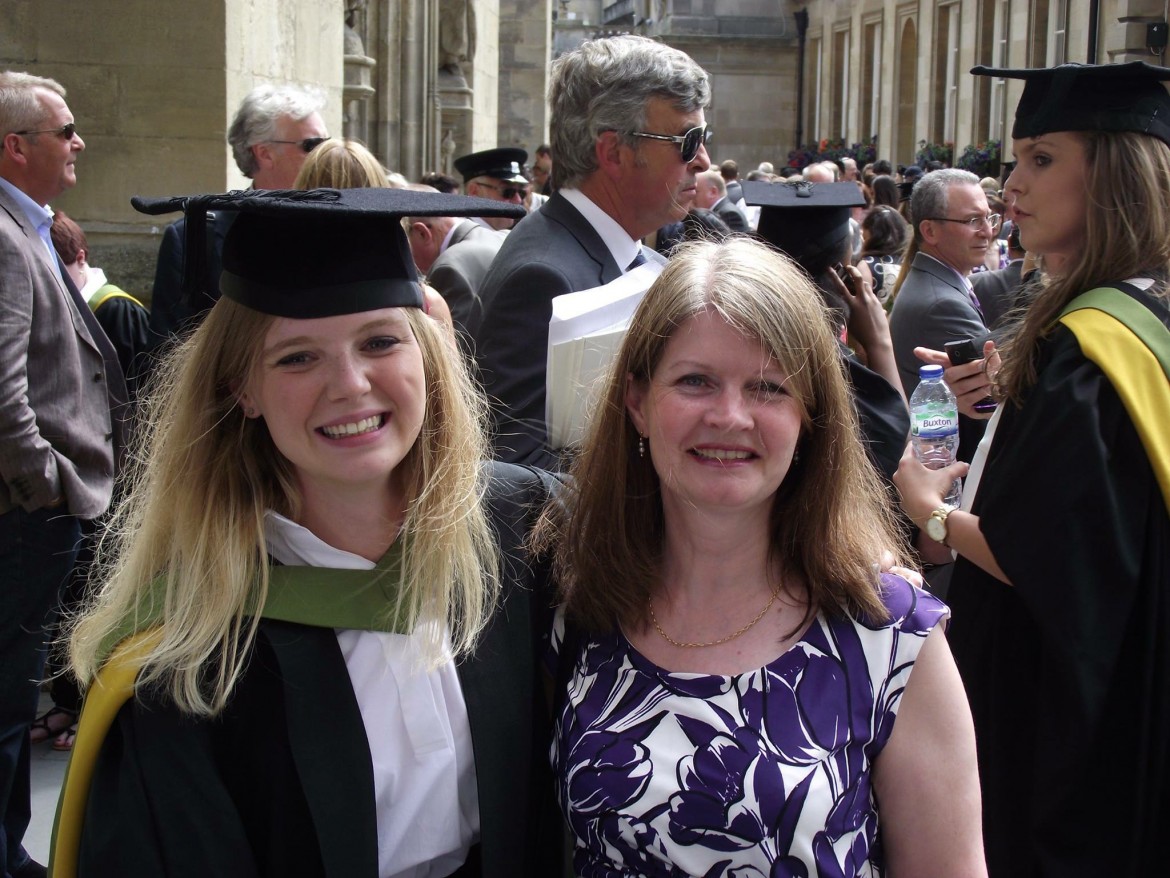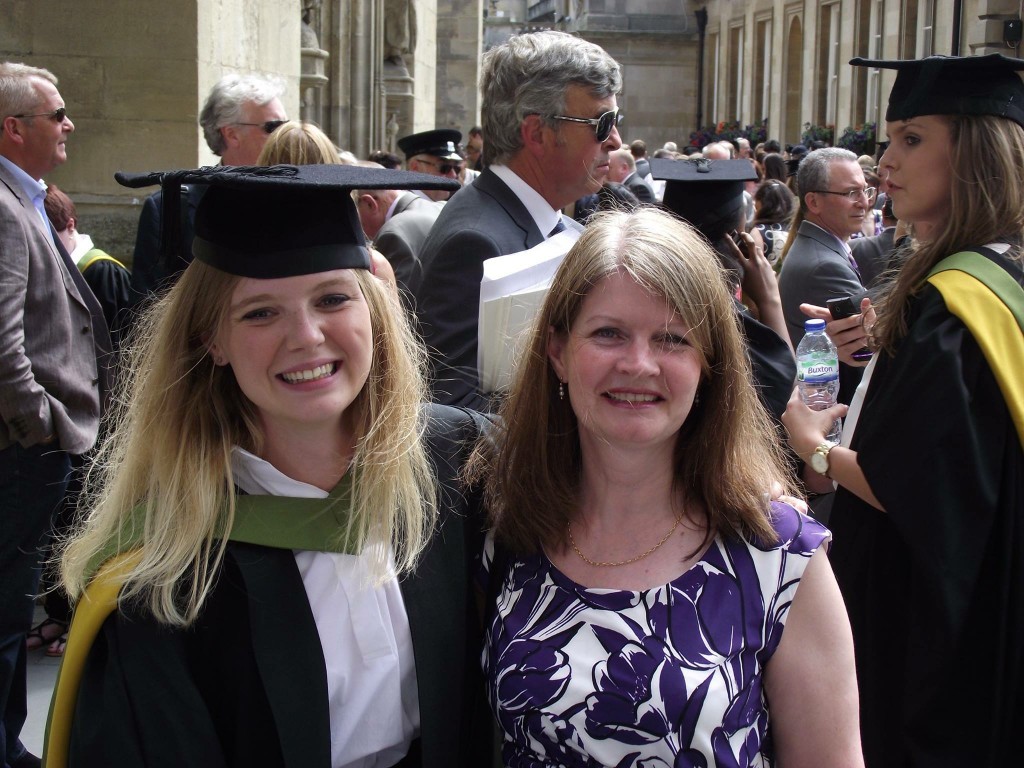Let’s end the working week with with a Uni Life interview. The purpose behind this interview series is to give prospective and current students an insight into life at university, what it takes to get there and how to survive. I hope that these interviews will give you a chance to learn from current and recently graduated students about the courses you’re interested in.
Today’s interview is with Claire, a Modern History graduate.
What course did you study for your MA?
Modern History, which is the period from around 1500, and extends (conveniently) until you would consider historical events to have been immediately pertinent to the present day.
Did you have to study specific subjects to get onto the course?
Yes, but I would consider the university pretty flexible in this. I did my undergraduate degree in Politics and International Relations, so I had some grounding in the modern period, but the methodology of study was very different. So not specific subjects, but definitely related subjects, which meant that everyone was at least familiar with the subject material.
How did you know this was the right course for you?
I paid for my tuition fees straight out of my savings, and I didn’t get any funding or bursary, so I had to move back in with my parents to be able to do my Masters. I’m just very lucky that my hometown, where my parents live, happens to have such a good university in it – and one that accepted me!
What did you enjoy most about the course?
The content of the courses, and the teaching style. Both felt so much more personal and interactive just because of the class sizes and the reduced contact time. It is not an exaggeration to say that doing my Masters confirmed that I want to have an academic career, especially the teaching aspect. I taught some undergraduate seminars and tutored dissertation students and that helped me fall completely in love with taking on that role. I also met my PhD supervisor, and they became a fantastic source of support when I needed it.
How did you stay motivated and focused?
My course mates deserve all of the credit for this. The people in my seminars and the people who shared our postgraduate office with us especially. Without them I think I could have easily spent more time with my head on my keyboard, crying, than actually reading and writing. The support from teaching staff as well, when you can find it, is really immeasurably helpful.
Within myself, this was the year where I really had to personally reject the notion that my grades equal my intelligence, or my ability, or my worth. To approach my studies from the point of view that researching and gaining knowledge is a journey for the sake of it, and believing that is the way we should approach university study, was really important in keeping me going. It allowed me to try as hard as possible to distance myself from toxic thought-processes and be my own best supporter.
What did you find most challenging about the course?
This was also the year when I became very aware of how much work needs to be done in terms of teaching standards and accessibility to university study. I believe completely that there needs to be a better approach to emotionally support students. University is hard. It is emotionally draining especially because of the grading and the weight that other people and the individual can place on their grades.
That was challenging for me because it is completely not the way I think about anyone else, I would never suggest someone wasn’t intelligent just because they didn’t get Distinctions/Firsts in every assessment. But there are people who believe that, and it’s hard to get out of that mind-set when you’re so surrounded by this obsession with numbers.
In the interests of full disclosure too, I couldn’t answer this question without mentioning that my brother passed away halfway through my Masters course, after being diagnosed with cancer in the week before I started. I’m proud of myself for carrying on, and completing my degree, but I also really wore myself down and found it impossible to give myself a break. Everyone spent the whole year telling me the fact that I could even carry on was enough but the university environment is just not a supportive one when you have real-life stuff going on too. I was simultaneously exhausted and grieving, and still putting all of the pressure on myself to be great and get good grades.
Were internships easy to come by?
The course was only 12-months long but I was lucky enough to be able to do a placement year as part of my BSc. I also worked whilst I did my MA and was lucky enough to get a job as a writer for a designer fashion store/art gallery space. I also wrote freelance during this time and volunteered at a local museum.
Please tell us more about the work experience you gained.
To talk about the job I got at the store/art gallery, I learnt so much from this job. It was an amazing opportunity to work as a writer and get involved with so many other projects on the side. Working in fashion was never my intention and in no way linked to my degree, but I did absolutely love it and the diversity it brought to my life simply because it was nothing to do with my MA. It meant I could seriously think about what I actually wanted to do when I finished my MA.
What are your career plans for 2016?
Right now I’m in Amman, Jordan. Working in a similar, although slightly more technical role, as my previous job. The plan is to stay here for the rest of the year. I hope to start my PhD next October, and since my subject area is women in the Middle East and North Africa, I thought it would be a good place to start learning Arabic. This year I really can do anything I want, whilst I’m still writing and speaking at conferences, so since I also get to travel at the same time, this job opportunity was pretty much perfect.
What do you wish you knew about university life before you started?
Before my undergrad, I wish someone would have warned me quite how much I would feel like an outsider sometimes, because of where I’m from. Of course looking back I wish I’d discovered yoga sooner, started learning French sooner, and started writing sooner. I wish I’d known that I could do multiple things at once and I didn’t have to just do my degree and get a job. Most importantly though, I knew all of that by the time I started my MA, and I do all those things now.
People still ask me what I’m doing here, just like they asked what the point in doing my MA was. Now I feel like I can say ‘just because I can and I want to’ much more confidently. That is a good enough reason, by the way, but I am also constantly hustling to get to where I want to be, and being here is just one part of that.
What advice would you offer to prospective Modern History students?
If you didn’t do the same subject for your undergraduate degree, do a little research on the modules you’re planning on taking. You don’t want to spend the first seminar panic-searching who Stalin is on your phone. Otherwise, just enjoy it and learn very quickly to ignore people who question your employability. Try asking them what scientists or engineers ever did to help anybody.
Seriously though, if you’re a woman, support your historian sisters. You might think there are loads of girls on your course but a quick glance at library shelves tells a very different story. If you’re studying a time period and no one has mentioned women, ask what they were doing. It is no exaggeration to say this is exactly how I found the gap in research that is now my specialist area.
What did you do during your spare time at university?
I worked, I wrote, and I had lunch and coffee breaks with my friends so they didn’t forget who I was.
That’s a bit of an exaggeration but it was a pretty non-stop twelve months. Those lunch and coffee breaks kept us all sane. I’m a pretty fluid worker so I can work all day but I’ll probably need to have five minutes in every thirty either speaking to someone or doing something non-historical.
Finally, what was your go to meal after a busy day of lectures?
I was lucky enough to come home to homemade meals every day. In their absence then heading out to dinner with my friends was a very welcome treat and we usually banned any university/history related chat. This almost never worked, but at least we tried.
Thank you so much to Claire for sharing her Uni Life story with us. I wish her lots of luck in her PHD and career. I can tell she’s going to go onto very exciting things.
You can find Claire over on her blog, Instagram and Twitter page.




